Rehabilitation by Love. Three Stories about Coming Back to Life
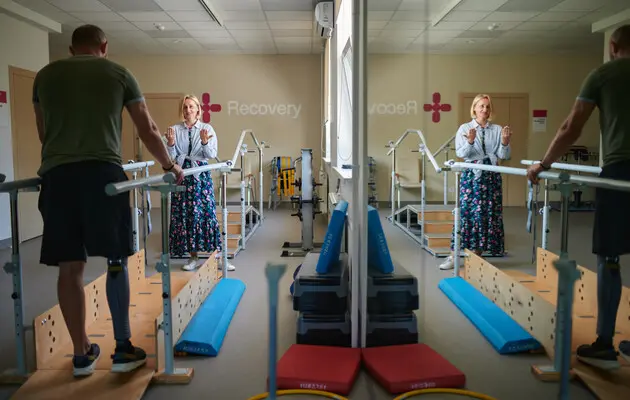
Talking to the wives of soldiers who were seriously injured and lost limbs, I try to draw up an algorithm of actions: what to do when a loved one finds himself in such a situation? And also understand what helps military wives support their husbands and not go crazy themselves? Because, despite the pain and fear for a loved one, no one canceled everyday life with work to be done and children to be cared for.
These are the stories of three women whose husbands were wounded in the war. They undergo recovery at the centers of the RECOVERY national network in Kyiv, Rivne and Odesa. In total, today there are already 12 such innovative centers throughout Ukraine: all of them provide free services for physical and psychological rehabilitation to military personnel after injuries. This project was started by Viktor Pinchuk and Olena Pinchuk to help the Security and Defense Forces of Ukraine.
Water circles: Olha Batalova and Oleksandr Batalov
Olha Batalova is the wife of the soldier Oleksandr Batalov, who was wounded in the war and lost a limb. The family lives in Kyiv. Olha is about forty years old, she is reserved and exudes confidence and calmness. I can feel it even through the computer screen. On the wall behind her is a picture of a little girl. This girl is smiling and carefree. I think that at the beginning of the 2000s, Ukrainians were the same, namely a little naive, easy, able to feel joy without an insidious sense of guilt.
Olha is a psychologist. Her husband in peacetime worked as a massage therapist, and in the war he was a commander. They have been together for 15 years. We met in the wellness center in the 2000s. Olha taught fitness there, Oleksandr was an administrator in the cardio zone.
As a child, Olha was engaged in artistic gymnastics. She is a master of sports. In adult life, there were fitness and yoga. Currently, she combines her knowledge of the body with psychology, in particular, she practices body-oriented therapy. During the conversation, I say that gymnastics is one of the toughest sports: significant physical exertion, psychological pressure from coaches.
"Yes, it's tough," agrees Olha. — On the mental and physical levels, there are many different consequences since those times. That's why I had to deal with them in the past and still have to deal with them. But in some ways, this determined my current approach to a person, to his body, to health, and to what sport means.
— What is the approach now?
— Be kind to yourself. What do we do in that therapy? We become good friends. Because first of all, we are very hard on ourselves. This also affects the body. And it is precisely this that affects what schedules we arrange for ourselves, what relationships we endure.
I ask if Olha agrees with the fact that people who have gone through professional sports have such a feature, namely to mobilize all their resources in a critical situation, quickly make a decision and act. She does not agree.
I ask about her husband: has he changed after the army? She replies that his main traits have remained unchanged – decency, honesty, responsibility.
"I think this was the reason why he decided to go to war," she explains. — Even now — after losing his leg, after losing his comrades in arms, he says: "If they asked me: would I have left in the past, knowing what would happen, or would I have hid? — I would answer: no, I would prepare even more thoroughly."
Oleksandr mobilized in 2023. He was preparing for the war – he completed courses in tactical medicine and combat training. He was buying equipment. And when he received a summons and was mobilized, he also explained to the boys during training how to provide first aid to the wounded, because he understood that how they would save each other on the battlefield depends on how they learn now. And he turned out to be right, because after receiving a wound, her husband was put on a tourniquet by that comrade, whose skills he himself tested.
Olha says that in peaceful life before the war, she and her husband used to go for a walk after work and talk. He also introduced such a tradition in his unit. Almost every evening, the fighters went for a walk and took an empty bottle with them. The one who held this bottle was the one who spoke about the pain. The fighters liked the walk. And even when the commander was demobilized, the tradition remained. Olha calls it "circles on the water": "The boys will continue to serve in the army without Oleksandr, but they will already know about this simple way of mutual support."
A portal to discover the good
Waiting for a loved one from the war is difficult and scary. War hardens the main features of a person. It strengthens the relationships and removes the dust of everyday life from them. Olha summed up her experience in a short and concise sentence: "We managed to experience it with real closeness at a great distance."
Olha was sitting with a friend in a cafe, when a chief medical officer called her and said that Oleksandr had been injured.
— My world turned upside down at that moment! — says Olha. — I immediately grabbed my friend's hand. She supported me. In fact, everything was fine with me, in such moments I quickly organize myself and do what is necessary. But it is important for me not to be alone. On the same day, I had a scheduled session with a psychologist, — Olha smiles sincerely. - Who is so lucky to be not alone at such moments of life, and with qualified support?!
At that time, Olha did not know that her husband had lost his leg. She went home and waited for a call from the hospital. She made up her own occupation.
— I went through the bookcase. Around five in the morning, she got a call from the hospital. They said, they say, the husband will call you back, she should keep the phone close to her. And the very next day Oleksandr called. He said: "It's me, I don't have a leg."
Then Oleksandr was transferred to the capital. The first person who met him in Kyiv was his wife.
— I immediately saw that it was my husband. I didn't feel like "Oh my God (!), how will we live together now if he doesn't have a leg?!". I knew that we would all cope with this situation together.
Then there were two weeks of daily heavy operations. Olha canceled sessions with all clients and went on "vacation" for two months. She spent this time in the hospital with Oleksandr. According to her, the husband started working with a psychologist from the very first week.
— There is such a direction in psychology — EMDR, — the woman explains. — This direction is specifically aimed at working with the military. Oleksand worked online with his therapist. And it literally helped relieve shock stress in a few weeks. He couldn't sleep at first. He lay down and seemed to be returning to the battlefield. Therefore, it is very important for the military to work with psychotherapists — otherwise a person goes in circles, experiencing a traumatic situation over and over again.
Then the soldier was rehabilitated in the Kyiv rehabilitation center of the RECOVERY national network.
— There is good rehabilitation. There are new simulators, devices, modern methods are used. When we arrived, he was already slowly walking on crutches. The center had its own schedule: half a day of training and procedures. My presence was no longer urgently needed, so I returned to work.
— What have you learned about yourself during this time?
— During this time, I felt my great strength. The strength to cope and sustain. Do not despair in life, but on the contrary, appreciate it. In addition, my husband and I received enormous support at all levels, including financial support, because I was not working at the time. People came to us every day. We were visited by those with whom we are now friends, and those with whom we last saw each other twenty years ago.
Today, Oleksandr is at home, gradually returning to his usual life.
When Olha talks about him, she says with quiet admiration:
— He is like a portal for discovering the good in a person. On the street, passers-by often come up to him and thank him for his protection or nod and put their hand on his heart. We had stories of children running up and wondering what was wrong with his leg. Older women came up and asked what they could treat him to. And once a man who was walking with a baby said to him: "I thank you, because while you were there, I was able to be with my child." And this is a correct understanding of roles. Oleksandr and I then discussed this meeting. He said the right thing: when he was preparing for a year in Kyiv, in 2022, the military, who were fighting at the front at that time, gave him time for this preparation.
Jump into space: Anhelina Belova and Mykhailo Belov
When Mykhailo from Alexandria went to war in 2022, Anhelina was pregnant with their second child. The young woman learned about the fact that the man is at the front from a video on YouTube, where soldiers from the "Rubizh" brigade read the evening prayer. She saw her lover among the soldiers. Until now, the woman was sure that her Mykhailo was still in the training center for the military. In a tense phone conversation, he explained to his wife that he wanted him to benefit the country. And he didn't tell her about the fact that he was already serving in the brigade, because she would have been against it and she was pregnant anyway, why should she worry?
When Anhelina mentions this, she is indignant in a good way. She smiles all the time during the conversation.
— My husband, even when he was fighting, asked: "Why don't you go abroad? It's safe there." And I told him: "Because when I married you, I told the Civil Registry Office that I would be with you both in joy and in sorrow. So what if everything is fine - I'm with you, but if trouble happened - I'll go?! It won't be like that! And then, who would bring him a bulletproof vest and other things? Because until the authorities issue all the necessary equipment, it may take a long time, and many important things have long been necessary for the soldier to carry with him! And I have to go to volunteers, look for everything I need. Who would do all this but me? Well, who?!
At the end of December 2022, my husband stopped contacting me. Then his commander called and shocked me with the news: on December 31, Mykhailo was seriously wounded and was in the hospital. In which one, he did not specify. He only noted that the soldier would be brought to Kyiv by train. Anhelina, who was already in her fourth month of pregnancy, left her eldest son with her parents and rushed to Kyiv herself. Mykhailo was in a coma for 26 days. Anhelina remembers this number well, because the doctors said then: if the husband does not come to his senses on January 26, he will never recover.
Here, a smiling Anhelina asks to take a break. Since we're talking via video link, for a while all I can see is the ceiling of her car. She holds on, but her voice trembles a little. I want to help her, say something good, comforting, but I don't know what to say.
-— Here! — Anhelina pointed the phone camera at herself again. — The doctor said that Mykhailo may not regain consciousness, because one fourth of the right hemisphere of his brain is completely damaged. In addition, he has numerous shrapnel wounds on his body, near the thyroid gland, and many other injuries. Then he had sepsis more than once.
— Did you talk to Mykhailo when he was in a coma?
She nods.
— At first I cried a lot and couldn't say anything. Then the doctor advised me: "You talk to him. Don't stand, don't cry, calm down and talk to him. He hears you. It's not scientifically proven, but I think he hears you." Since then I started telling about everything. About my day, about what I was told at the ultrasound. And I also told him: "Belov, you promised me that nothing would happen to you! Come on, enough lying on the bed! You never lay down, get up!"
At some point, Mykhailo felt worse. Anhelina also felt bad. And she was forbidden to be nervous, because it is harmful to her health.
— And how not to be nervous in such a situation? Anhelina asks a rhetorical question. And summarizes:
— Today there is nothing that I would be afraid to see, because I have already seen scary things. This long corridor in the intensive care unit feels like you are standing on the edge of an abyss. And at the same time, you can't take a pill or just drink. You can't do anything at all.
Anhelina was transferred to another hospital for fetal preservation. And on January 26, her husband came to his senses. So she knows about how everything happened from the words of her mother-in-law. The happy doctor came out of the intensive care unit: "Mother, can you imagine that your son has regained consciousness - it's a jump into space!"
Then they started moving from one hospital to another, from one city to another. Lviv, Rivne. Anhelina remembers that period like this:
— I lived as if in a terrible dream. The phone was constantly ringing, my head was full of thoughts. My son lived with my parents, he did not see me for months or two at all. Because I came, spent the night and went back.
— Did you immediately tell your son about dad?
— No. At first I didn't say anything to him at all. I lied that I had to go on a business trip. He found out about dad himself. At school. He asks me: "Mom, what, our dad is dying?". (Pause.) Then I took the child to a child psychologist, because all this had a strong impact on his psyche. Dad is for him a guru, a mentor.
Mykhailo underwent ten operations. Now he is almost healthy, but long rehabilitation is needed. He passes it in Rivne RECOVERY. Doctors believe that the probability that he will fully recover is high. Anhelina gave birth to a daughter. Her husband named her daughter Victoria.
What Anhelina believes in
When the situation with Mykhailo more or less stabilized, Anhelina started having panic attacks.
— As soon as the evening came, I was getting scared. There were nightmares - as if Russians with machine guns were walking under the windows. Once there was a moment when my son saw me in this state, and I did not control myself like that, my hands and legs were shaking. So I consulted a neurologist, now I take pills. Thank God, there are no panic attacks. But I understand that I should talk to a psychologist.
— Did someone support you when your husband was in the hospital?
— My good woman. She lives across the fence from me. Always ready to listen. Constantly worried about me, tried to help. She went to Kyiv with me when Mykhailo was in intensive care.
— Did the war change your husband?
— He became softer. If he used to hide his emotions, it was impossible to learn anything from him, now he may even cry. He had seizures before the skull was closed. He is still constantly nervous about the news, worries about his siblings, takes everything close to his heart. It's like my Mykhailo, but a little softer.
— What have you learned about yourself?
— It will soon be ten years since Mykhailo and I have been together. When my husband left to serve in the army, I was actually proud of him, although sometimes I could yell at him because I wanted him to be with me. When I was told that he might die, I remember telling my children's godmother that I didn't want to live without him. I want to be only with him. Then I felt: this person is my meaning of life. He and my children are sacred to me.
Dad's mine: Lisa Larik and Vadym Larik
In 2014, Lisa and Vadym from Odessa were still in high school. In 2022, Vadym worked at a telecommunications company, in the monitoring department, and studied part-time at the university. His wife, Lisa, was on maternity leave and raising their young son.
When the war began, at the age of 24, Vadym first joined the local Territorial Defence Forces, then the Ukrainian Armed Forces. He served in the Odesa region, and soon he was transferred to the border with Transnistria, then to Bakhmut. There he suffered his first serious injury. After treatment in December 2023, he transferred to the Azov Assault Brigade. He underwent combat training together with the soldiers of this brigade. At night, he was blown up by an anti-personnel mine and lost a limb.
— The first wound was severe, it cut my leg very badly, exactly the one that was torn off by the mine. A shrapnel hit the left thigh, which reached the intestine and perforated it. So my husband had to have an operation. Now he has such a huge scar on his stomach, — Lisa tells this discreetly. She moves on to the part where she received the news about Vadym's second wounding. — He wrote to me around ten in the evening that he was the 300th and lost his leg. It was like a blow to the head. It's good that my son was already asleep and didn't see me. I didn't know what to do. Who should leave the child with? How to go to Kharkiv? But everything was resolved. My husband asked me to call his mother and tell her about the injury, because he could not do it himself. I called her. Mother took a vacation at her own expense and told me: "Don't worry, everything will be fine, I'll go instead of you." And she went to Kharkiv. My husband and I decided together whether our son and I should come to Kharkiv, because the situation there was very difficult. He said that we don't need to come there. His mother was with him all the time while he was being operated on. On April 7, they came to Odessa, and we have been together ever since.
Soon Vadym will be given his first prosthesis, on which he will learn to keep his balance and walk. The prognosis of the doctors is good, as the muscles of the leg have not atrophied. The soldier is in the Odessa rehabilitation center. He gets around on crutches.
— And it should be said that he does it very quickly! — there is pride in Lisa's voice. — We don't go outside for long walks, such walks make him tired, besides, his leg still hurts sometimes.
Lisa jokes a lot, but you can see how much she worries about her husband. She says that the only two elevators in the rehabilitation center work irregularly because there is no engineer to fix them. Patients do not have the right to use the elevator themselves. You have to wait for the next nurse or center worker. Sometimes it takes a long time. There is a second option – to go up the stairs. For Vadim, to go is to jump to the fourth or fifth floor, where the procedures are carried out.
At first, it was difficult for Liza to accept the fact that Vadym did not have a leg. She was worried about how to support him. But, according to her, the husband is positive and rather he is the one who calms and supports his wife.
— He already wants to run! Lisa laughs. — After all, we have a little boy who is used to playing active games with his father.
— Did you immediately tell your son about dad's injury?
— Almost. She explained that dad would not be able to run. A few months for sure, because he doesn't have a leg.
— How did he react?
— He didn't cry, he only asked: "Mom, how is it, dad didn't notice the mine?!".
— Does your husband tell you about the war?
— I try to mention this topic as little as possible. What should I listen to, how he fought, how many people died at his hands? No, it is very difficult. He can talk about the war with friends, relatives, and my parents without any problems. But it is very difficult for me to accept and listen to it. — (Pause.) Lisa continues, speaks quickly, nervously. — I am trying to protect myself and the child from this. In addition, I try to make sure that the man is distracted from his inner demons. I want him to understand that he is at home, he does not need to worry that someone will attack now. And the son does not ask about the war, he already knows that there is a war going on. In kindergarten, he and the group go to the bomb shelter. He is aware that when "shaheds" are flying, when shots are heard and explosions are heard, one must hide where there are two walls. He takes a pillow and a blanket and sleeps in the bathroom. It happened that he and I slept there all night. About the war, he only asks his father his favorite: "How did you not notice the mine?". Or he himself, without understanding, jokes when they both play games: "Dad, be careful! Do not step on the mine!". And my husband and I sit and laugh at him.
— How do people around you react to your couple on the street? Do they thank you?
— No! There was one time when I took my husband out of the pool. We were walking down an alley, a boy came up, gave us his phone number, said that he had a car, and if needed, he could drive us. Somehow a drunken company was sitting at the entrance to the house, saw us, fell silent, then began: we wish you happiness and health, so young, so young. And there was no such thing as someone coming up, shaking Vadym's hand and saying: "Thank you for protecting the Motherland."
— Do you think he needs it?
— He would be pleased if this happened. Any military person is pleased to hear words of thanks from a civilian. I would like people to be more attentive and encourage our soldiers. Because somehow you look at boys, and they are often sad. They also want to go home.
She ponders and adds:
— And our soldiers need tenderness and kind words.
We say goodbye, and I think it is worth mentioning that Lisa has formulated in a few words what we dare not admit, because it hurts: as much as drones and long-range weapons, our military needs gentleness and kind words. We all need them.
Read this article in Ukrainian and russian.
Please select it with the mouse and press Ctrl+Enter or Submit a bug











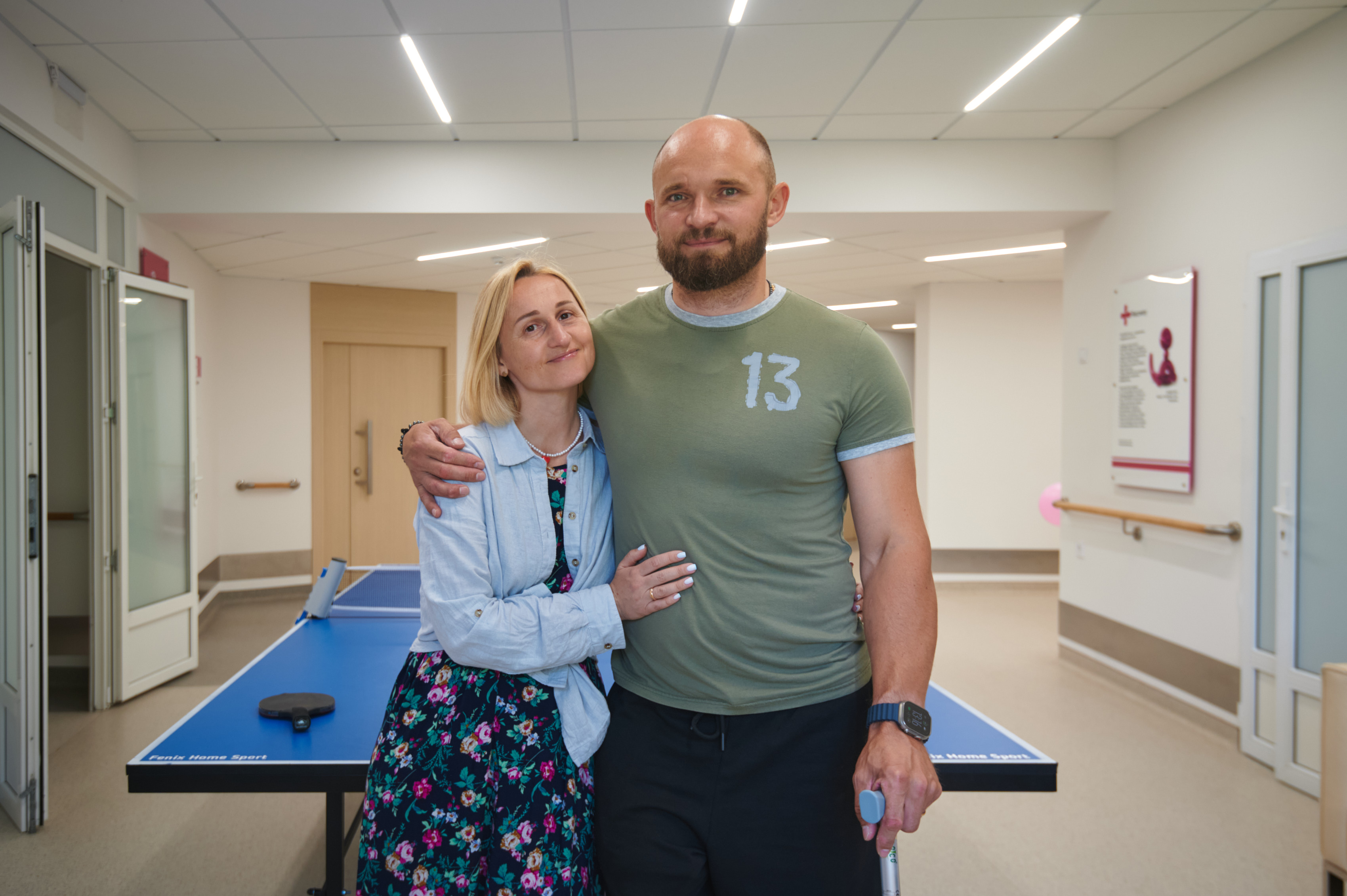
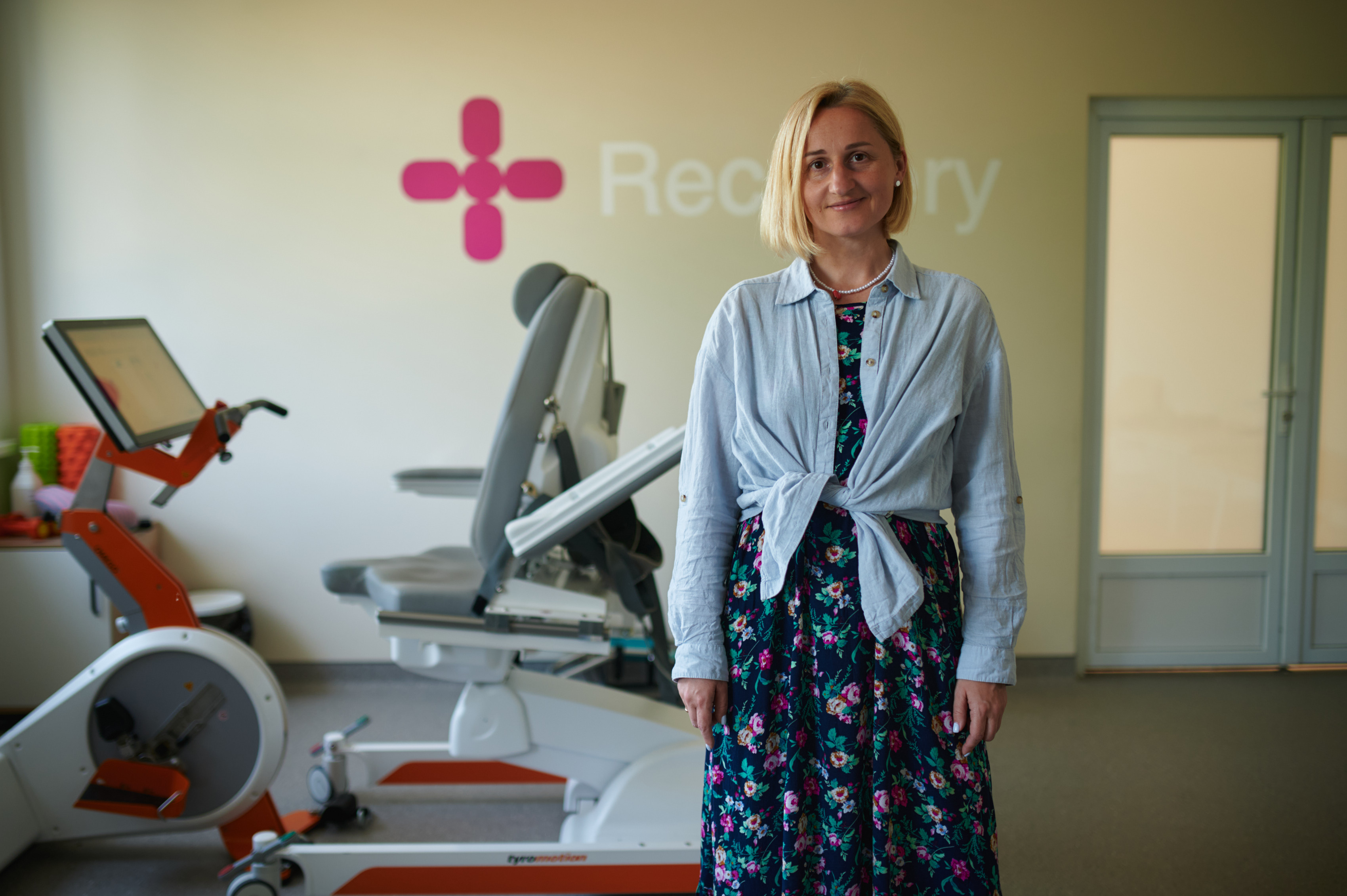
.jpeg)
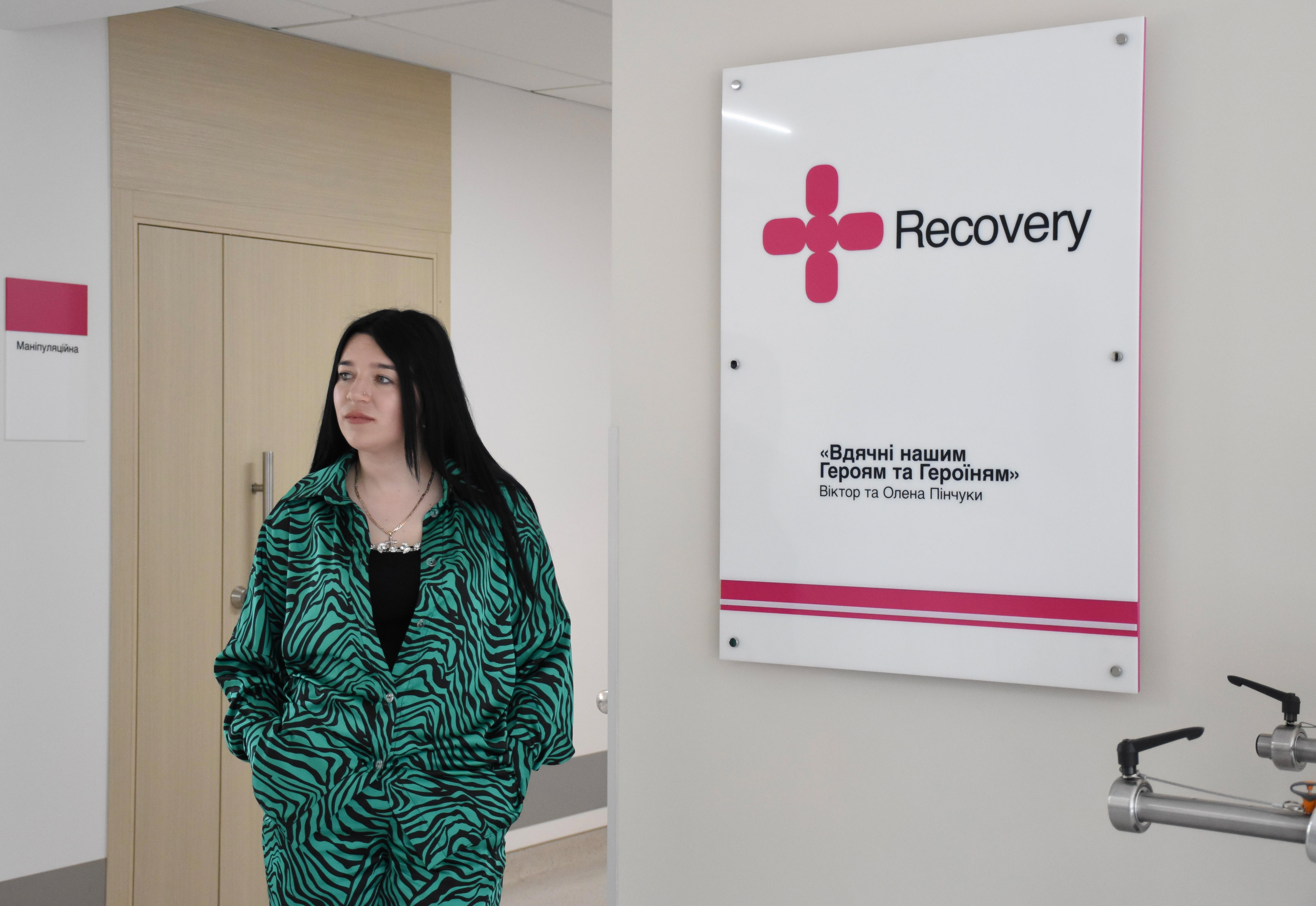
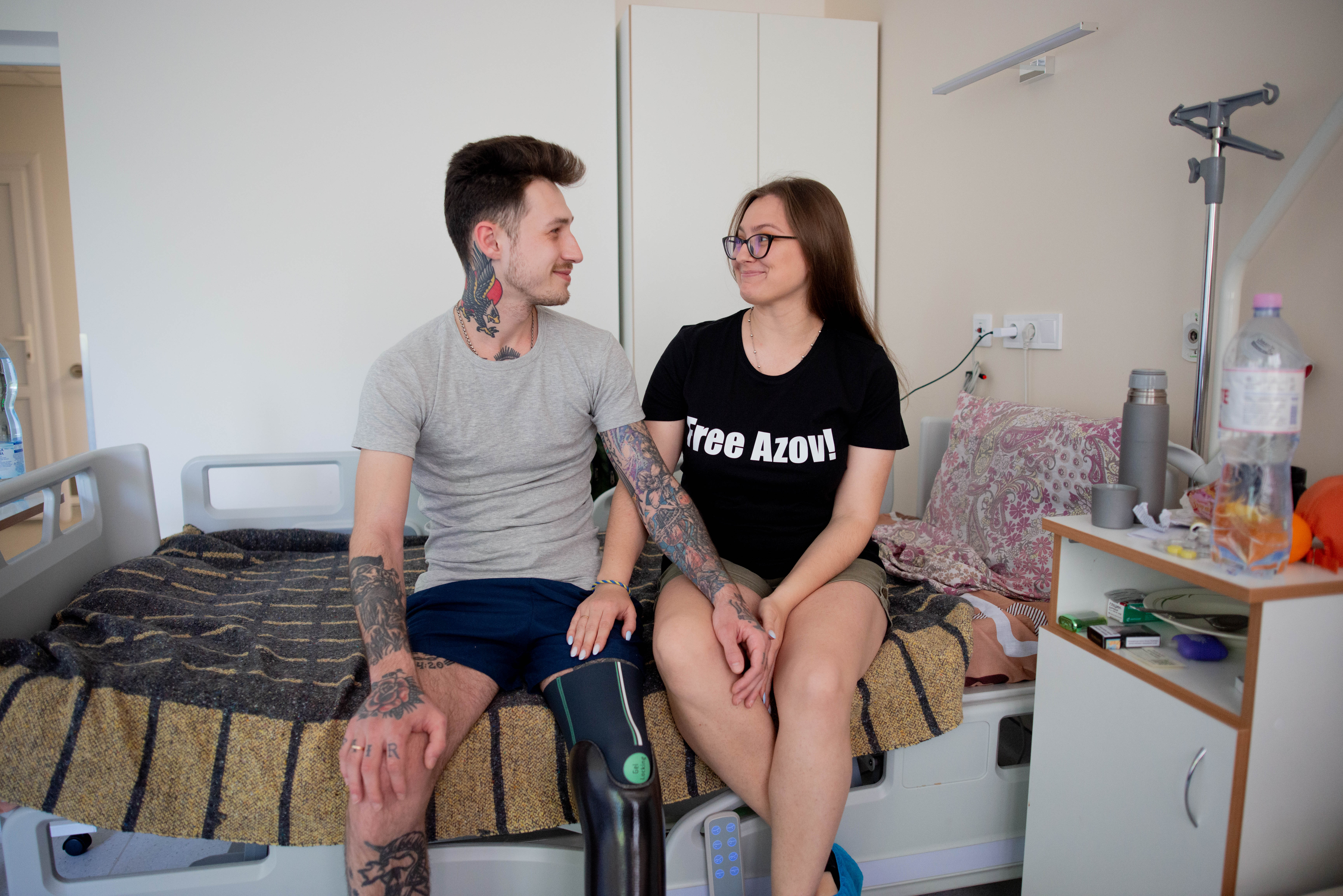
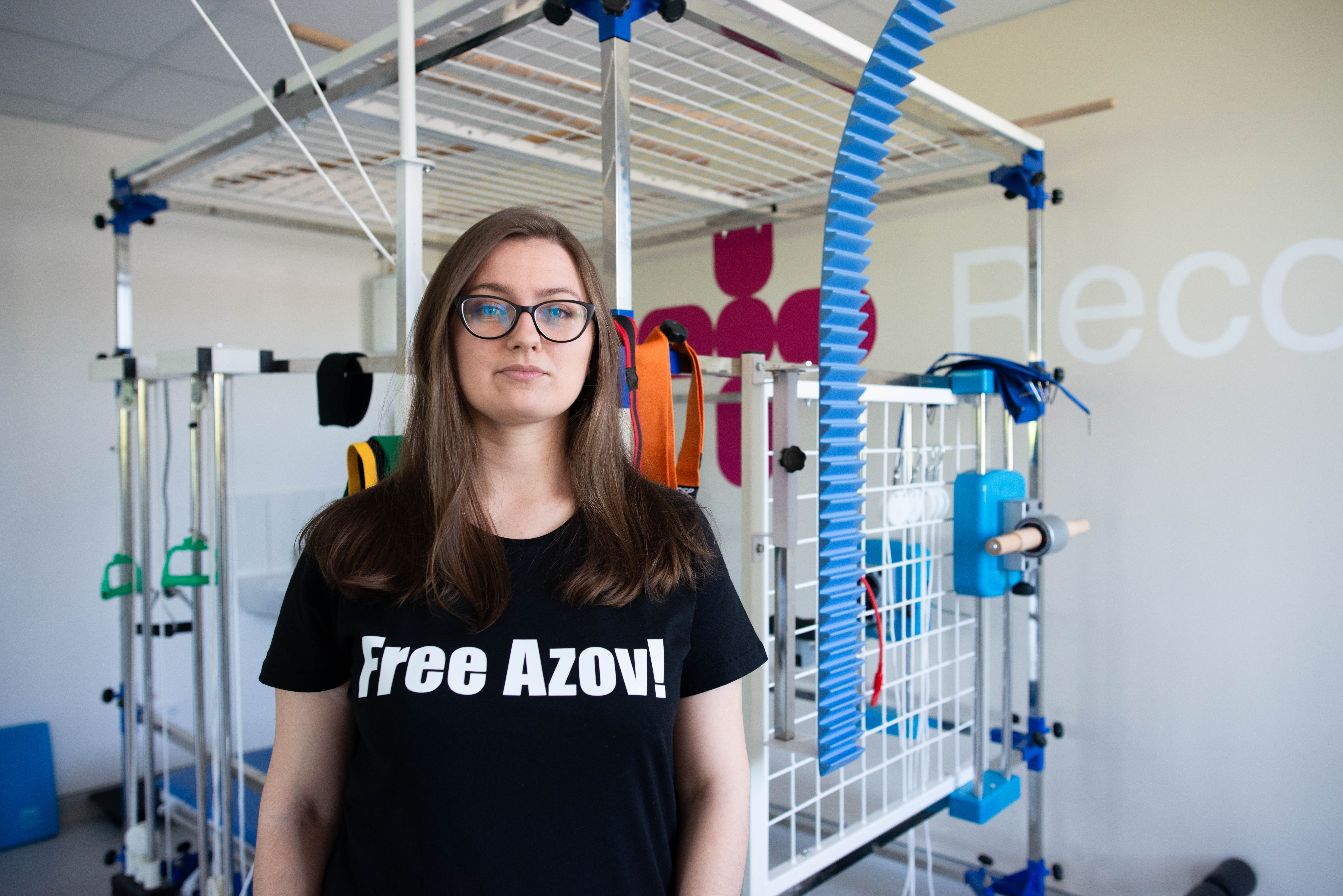
 Login with Google
Login with Google